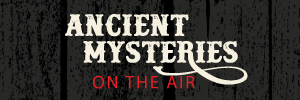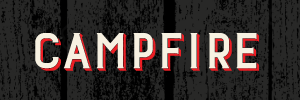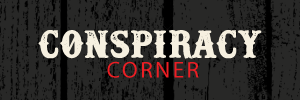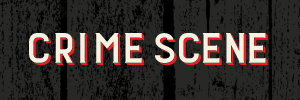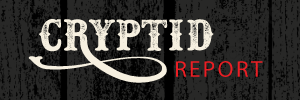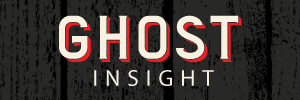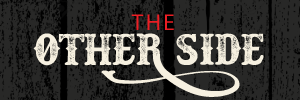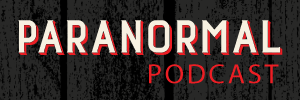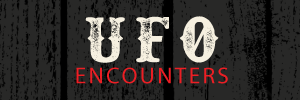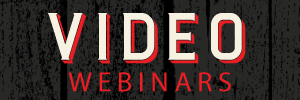Apr 29, 2022
Jim Willis talks to us about ego.
You can find his recent book at Amazon: Merlin the Magician: A Mystery for the Ages: Volume I: Ego and Earth Magic (Individuality and Primal Unity: Ego's Struggle for Dominance in Today's World Book 1)
Thanks Jim!
JIM’S SPRING BOOK GIVEAWAY &
NEWSLETTER
Never miss anything going on at the Spooky Studio and qualify for
Jim’s Spring Book Giveaway (some restrictions apply), sign up for
Jim’s FREE newsletter HERE
TRANSCRIPT
Please note we do not guarantee 100% transcript accuracy. The below
reflects a best effort. Thank you for your understanding.
Jim Harold 0:00
Fleeting glimpses of things seen through a veil, darkly. Do we
understand the meaning of these visions of life, why we are here,
and how little of our existence we truly understand? Tonight we
will talk of these things on _The Other Side_.
Jim Willis 0:17
Welcome to the program. I am Jim Harold, so glad to be with you.
And over the years, you gain favorite guests who become friends.
And it's always-- you know, it's a nice chance to catch up when you
get to talk to them multiple times a year, in some cases, and
that's the case with one of our favorite guests, Jim Willis. He is
a theologian, a historian, and musician. He earned his bachelor's
degree from the Eastman School of Music and his master's degree
from Andover Newton Theological School. And he's been an ordained
minister for over 40 years. And he's worked as a college professor.
He's been the host of his own drivetime radio show, a part time
musician. And we were talking before, you know, with the age of the
internet: he has a YouTube channel, and he reaches thousands of
people. Where before, in his in person ministry, those numbers
weren't quite at that level.
Jim W. 1:12
(Laughs).
Jim Harold 1:12
Just the amazing technological age that we're in. And we're going
to talk to Jim about the technological age a little bit. He has a
three book series called, _Individuality and Primal Unity: Ego's
Struggle for Dominance in Today's World_. And if you look at social
media, there's a lot of ego these days. But I thought first maybe
we talk about your- your fiction work. I believe it's your first:
_Wizard in the Wood_, Jim.
Jim W. 1:40
Yes.
Jim Harold 1:40
So welcome back to the show. And tell us about this work of
fiction, and how you decided to take that turn in your work.
Jim W. 1:51
Oh, thank you, Jim. Always- always good to be with you. Yeah, _The
Wizard in the Wood_, my first work of fiction, and I did it--
believe it or not, I had to-- I call it my palate cleanser.
(Laughs).
Jim Harold 2:03
(Laughs).
Jim W. 2:05
It's a- it's a wonderful little story, a coming of age story, about
a young boy who meets the man he begins to call, the wizard in the
wood, who teaches him all kinds of wonderful, magical things like
dowsing, and how to- how to make fire out of the air. And it's- he
spends summers with this wizard in the wood, he comes to call him.
Until, like all of us, he grows up and gets out into the world.
And- and loses it. He has a tragedy in his life. And he loses it,
and he has to go to Vietnam, and there he has some-- in the army--
and there he has some great experiences. And when he comes back, he
gets older like all of us do, and he recaptures that magic. And so
the story was about how to recapture magic and innocence in our
lives. And I'm- I'm really proud of it. To be honest, it's the
favorite work that I've done. I think I've- I think I've written 17
books I've had published, now--
Jim Harold 3:11
Wow.
Jim W. 3:11
-- and two more in the running. So it'll be-- this- this fall, I
have two more coming up. And of all of the stuff that I've done,
this has been my favorite. If- if only because, you know, not only
because it was such a refreshing story to write, and it's such a
positive, and I think uplifting story. But I also didn't-- We, Jan,
my daughter and I recorded our first audiobook, and we produced it
ourselves. I've had some of my books-- publishers have had them put
onto audiobooks, but to be honest, I've never really been happy
with them. They didn't seem to have the- the heart and soul, the
blood that I wanted in it (Laughing). So I had to learn a whole new
set of skills and turn my writing office into a recording studio.
But we managed to do it. I had- had fun along the way. There's one-
one chapter where the hero, his name is Artie, and he's caught in a
firefight in Vietnam, and we had to reproduce the sounds of a
Vietnam firefight. Well, there's a lot of music in the book. And of
course, you can't use music nowadays. You know, because of
copyrights and, you know, stepping- stepping on people's toes--
Jim Harold 3:11
Yeah.
Jim W. 3:53
-- and royalties, and all that kind of stuff. So I had to find a
source for music. And I was very fortunate in that a number of
years ago, I came across a man who has become a long distance
friend, he's in India, his name is Ajit Padmanabh, and he's a
fantastic musician. He's brought out two albums, and he's just
wonderful, a wonderful guy. And although we'd never met in person,
we, you know, we Skype a lot, and we talk a lot, and email back and
forth. And he was generous enough to allow me to use his music, and
he had a couple of- couple of pieces on there that just show up
time and time again. He even composed one specially for the book.
But it was so much fun, because he had one piece of music that we--
really had the vibrant driving energy underneath this Vietnam
firefight, but we had to have the sounds of war. And how do you do
that? Well, as luck would have it, we were recording during the
first week of July. And there was a place right across the lake
from us that had a fireworks display going on to celebrate the
Fourth of July. So Jan just went out on her- on her deck and
recorded it. And the next day, a couple of low flying jets flew
over, and she recorded them, and she recorded the sound of the
insects and the monsoon rains. And I- I just took her recordings
and ran them through the studio. And pretty soon we had a Vietnam
fight- a firefight going on.
Jim Harold 5:52
Oh my.
Jim W. 5:53
It was- it was just an awful lot of fun. And I really enjoy, not
only the process of writing it, I honestly feel was helped. Because
when I started writing the book, I didn't know where it was going
to go. I didn't know what was going to happen. I learned, as I
wrote, what happened to these people, and it just kind of flowed
through me chapter by chapter. I would write a chapter, and I would
read it to my wife, and I would read it to Jan. And they would
always say, "Well, what's going to happen next?" I say, "I don't
know. Hasn't happened yet." So I just kind of felt like it was- it
was a story that was writing itself, through me. And it was the
story that became, _The Wizard in the Wood_. And it's it's been,
you know, it's just been a total joy. Except, when you asked how I
came to write it in fiction, I called it a palate cleanser. And the
reason was for about two or three years-- oh, Jim, I've been
disturbed about what's- what's going on in the world. I saw an
interview recently, that was 40 years old done with Carl Sagan.
Jim Harold 6:59
Mhm.
Jim W. 7:00
And Carl Sagan put a very bleak picture of the future forward. He
said, as a human race, we're up for grabs. And the interviewer, I
think it was oh, Charlie, what's- what was his name? Charlie--
Jim Harold 7:14
Charlie Rose?
Jim W. 7:15
Yes, Charlie Rose. Asked him why- why are you worried? And Sagan
said something that I thought was so prophetic, especially since he
said at 40 years ago. He said, we've created a world, a culture,
that's driven by technology, and science. And we have created a
population that doesn't understand anything about science and
technology. He said, now, what do you think is going to happen with
that?
Jim Harold 7:45
Yeah. You know, what I think about, Jim, when I think about-- and
we actually joke about it in my house, because I introduced this
quote to my kids. There was a senator, and God rest his soul, he's
passed away, but his-- Senator Stevens from Alaska, but he did this
whole litany on the floor of the Congress. I think it was on--
Yeah, on the Senate Floor, talking about some internet
legislation-- this about 10-12 years ago-- that was supposed to go
through. And this is one of the people who, Ted Stevens, and he was
one of the people in charge of our technology. And he went on to
explain how the internet is a series of tubes. And when the tubes
get full, that information slows down. And that's why internet- the
internet is slow. And for example, he said that, quote, his staff--
this is a paraphrase-- but basically, his staff had sent him a
quote, "an internet." And he didn't get it for multiple days,
because the tubes were full. Now, it's-- I think that's kind of
what you're talking about. One example, writ large, of, you know,
the people in charge of, and the people using, this powerful
technology that strangely enough, we talked about how great it can
be before we started recording, but also how bad it can be. And if
you don't understand it, that- that's not a good thing. So I always
think of Senator Stevens and- and again, he's passed and- and and
we don't mean to cast aspersions or speak ill of the dead. It's not
speaking ill of him, but the fact that he did not have that
knowledge, and he was one of the people in charge of running
it.
Jim W. 9:27
Yeah, yeah. And that's the scary part, isn't it? You're absolutely
right. Social media-- I-- the book, I just finished a book last
week, and I sent it into Visible Ink. It won't come out till the
fall, because it still has to go through all the editors and
producers and all that kind of stuff, but it was on American cults.
And one of the extended chapters was on how, what makes cults grow,
and one of the things that makes it so possible is social media.
Social media is- is wonderful, you know. People like you bring
together a family, you bring together people who can share ideas
and- and- and talk to one another. That's a fantastic thing when
the good guys use it. The problem is that the bad guys learn how to
use it, too.
Jim Harold 10:17
Yeah.
Jim W. 10:17
And, you know, we've seen in our recent history, in this country,
what can happen when, oh, people can just get together and- and do
all manner of of evil. I mean, every time your- your telephone
rings with a telephone scammer, it's because somebody deliberately
went out there, and got your telephone number, and your
information, and sold it to somebody on the dark web, who sold it
to somebody else on the dark web, who decided he wanted to do
something malicious, and you know, get your money, you know, and
come into your house and rob you without coming into your house.
And it- it's just a really terrible thing. And I- I had been
working on this and work and finally it built up in my head. And I
said, you know, it also makes possible for giant egos. We've- we've
all seen, you know, politicians, preachers, other people who really
don't know what they're talking about. And yet, they may have a
good voice or a good face, you know.
Jim Harold 11:19
Right.
Jim W. 11:20
And they get on the air. And they can do all manner of- of evil
things and say all kinds of things that are just outright
contradictory. But the-- it gives rise and vent to ego. And I was
seeing this and how we are run more and more by people whose ego
has gone from a healthy ego, which we all need, because we're
individuals, to a kind of first of all narcissism. And after
narcissism, becomes a kind of a patholog- pathology. Pathological
narcissism. And when I gathered all the information on this when I
was seeing what was going on, and I could see it- it's been
building for 10, 15, 20 years. And when I could see it all, I
decided I needed to write a book about it. And the book turned out
to be _Individual and Primal Unity_. And as soon as I came up with
that title, I said, "Yeah, no one's going to read this book." So I
began to look around, and I decided to attack it in a different
way, and had the one big book turned into a trilogy of three
smaller books. And each of the books is based on a different aspect
of this; how it develops, and where it is now, and where it's
going. And rather than just come up with facts and figures, which I
did for these books, I decided to use the wisdom of our elders. And
so I went into the old timers who told stories. And I use three
stories as the basis. The first book is called, _Little Snow White:
A Roadmap for our Time_. And that book talks about the subtitle
is-- well, no, that's the third book. The first book was called,
_Merlin the Magician: A Mystery for the Ages_. I call that one _Ego
and Earth Magic_, because I realized that in the Arthurian stories,
Arthur and Merlin, Merlin was caught in a transition period that's
very similar to what we're going through right now. He was the old-
the old druid, the old magician, who had his foot in the old world,
the natural world, a world where moss grows, and trees grow, and
birds sing, and- and he saw the world as a magical place. But
coming was a whole different world. Arthur, his- his- his protege
was coming along. And Arthur was in a total different world,
Arthur, although born a pagan in the old world just like Merlin, he
was raised as a Christian. And Christianity was beginning to rise
and his- his knights were going around, looking for holy grails,
and Christian Knights of the Round Table, and all that kind of
thing. And so it was a time of change from the old, natural
religion to the new religion in this place. In this case, it was
Christianity. And I began to see that that's really important for
our time, that we understand that we're living in a transition age.
That's why it's so uncomfortable. I follow that up with: well,
okay, if that's the case, how do you live in this world? Well,
that's where the second book comes in. That's Robin Hood. And I
call that _Victory through Defiance_ because Robin Hood was a man
of the city. He was a nobleman who had all of his- the gifts of
noble- nobility taken away from him, and he was forced to go live
in the woods. He became a man of the forest, and he gathered around
him, the band of merry men. And each one of the special gifts that
these merry men-- that his band brought to the- to the- the- the
whole community, the whole family of people who are living out in
the woods. They each had different unique gifts that allowed them
to defy what was going on around them. And I think we need to do
that. Each one of us needs to develop gifts that will protect us
from the shallowness of, and the materialism of this world, which
is just growing all around us. And of course, that- that's- that
was called, _Victory through Defiance_. And that leads us to the
last one, _Little Snow White: A Roadmap for our Time_. Where do we
go from here? Well, where we go from here is to recapture that
primal innocence. And I think _Little Snow White_ gives us a
roadmap for that. In going back and studying the material on little
Snow White it-- Disney really did us a disservice on this one. He
really did (Laughing). In- in the Disney version that we all grew
up with, you know, Snow White, was, you know, she ate the poisoned
apple by her- her stepmother, the wicked queen. And she fell into
this sleep and the, you know, she was awakened by the kiss of the
prince. Well, that's not what the original story is. In the
original story, Snow White fell under the spell of the Evil Queen,
but she was- she arose through her connection with earth energy.
And I think that gives us the roadmap, we need to get back to the
central primal earth energy, the magic that's still out there. And
when we do that, I think we have a roadmap of how to go forward.
And in the midst of all that, that's where _The Wizard in the Wood_
came from. I wanted to do a story that would depict how we can
reconnect with earth energy and the magic, the magic of life.
Jim Harold 16:55
And that's an interesting thing. I've talked to other authors about
this. Because generally, we focus on nonfiction books here. But a
lot of times-- and one of the masters of doing this, if you're
talking about television writing, for example, was Rod
Serling--
Jim W. 17:08
Oh yeah.
Jim Harold 17:09
-- you can get a lot of truth. And you can get a lot of things in
that are maybe somehow easier to digest in fiction than you can if
you just laid it all out in nonfiction. Is that true? Did you find
that true?
Jim W. 17:24
Oh, yeah, I think so. I look at nonfiction as kind of like music.
You know, you listen to your favorite music. Say you're a classical
musician. You listen to a Beethoven symphony or something, and when
it's over, all you can do is sit back and say, "Ah," and you can't
explain why it was beautiful and why it really touched you. All you
can- all you know is that it did. And I think fiction can do that
same thing. I think we do fiction a disservice when we try to
explain it. Oh, this means that, and this is a metaphor for this,
or symbolic. No, I think sometimes, just, we can get lost in it.
And- and- you begin to realize something, and it might be weeks,
months, maybe even years before you really understand what it is
that you got out of it. But it touched something: a deep chord
within you somewhere. And I loved the whole, I really did.
Jim Harold 18:20
Now you've done this three book series that talks about ego and
kind of what you were saying before about social media. I mean,
ego, and I'll admit to it, I mean, there is an ego component when
you do social media. Like, "How many likes did I get on this post?
How many followers do I have? Oh, that person has twice as many
followers than me!" I mean, it seems ready set to play to the ego.
What did you find?
Jim W. 18:48
Jim, I do it too. And you know what, you know what happens when we
do that? We become the evil queen who looks in her mirror every day
and say, "Mirror, mirror on the wall, who's the fairest of them
all?" We all step into that. I found that same thing happening with
me. I'm so glad to hear you say that. It makes me feel much better
to know that somebody else sees it too. It's just really terrible.
And you get up in the morning, the first thing you want to do is
turn on your computer and say, "Oh, I posted a new video yesterday.
Put it up on Facebook. How many people looked at it?" You know,
and- and your- your self-worth is based on how many people heard
what you had to say or saw what you had to say. That's a terrible
thing. The only way we can get self-worth is to get it from within
us. Otherwise it's- it's phony. It's surface. And yet we all do it,
don't we?
Jim Harold 19:37
Yeah, it's true. It's true. So, I mean, how do we combat that? How
do we--? I mean, I don't know that we'll-- we're humans, I don't
know that we ever become master of it. But how do we control the
ego to make it, you know, a player in the symphony and not just the
conductor?
Jim W. 19:57
Boy, when I- when I get that one figured out, I'll get back to you
right away.
Jim Harold 20:01
(Laughs).
Jim W. 20:02
There is- there is something that- that I think is just really
important. And first of all, it's understanding how, wha- how and
why it is. We talk about ego usually in a disparaging thing, but
this is going to get a little metaphysical now, I hope- I hope
that's okay.
Jim Harold 20:18
No that's good. We like metaphysical.
Jim W. 20:20
I really have come to believe, through a lot of experiences, and
some some of which you and I have talked about before, through out
of body experiences, and through dowsing, and we've talked about
those before on your program. But through all of that, I've- I've
really come to believe in this theory that says that we really
begin-- well throw in the-- I really do believe that all of us are
eternal beings. This body that we have is just a temporary
manifestation, a body, a vehicle, so to speak for what-- well, you
can call it a soul if you want. But in that perfect source, and
that perfect unity from which we all come: consciousness. There is
no individuality, because everything is one. How can there be
individuality? If- if everything is one, everything is at peace?
It's that still point in the middle of the circle? And Hindus call
it, "the Wheel of Samsara," goes around. And in the- in the middle
point, is that still point. Well, the source, obviously, is in the
process of learning all things. We are in the process of gathering
everything we need to know about what life, what consciousness, is
really all about. But you can't learn about it when you're in
perfect peace, perfect harmony, perfect unity. So I think every one
of us makes a courageous decision. We say, we're going to send out
something, an energy beam, from here, from the source. And that
energy is going to move through the various fields. We move through
the field of Akasha, for instance, the Akashic field which is a
field of potential, and a field of possibilities. And from there,
we move in-- we move through what-- the recently discovered Higgs
field. The Higgs field tells us that-- it is that field that
wherein- wherein energy moves through that field slows down, so to
speak, and takes on mass. Einstein told us about it. Energy and
mass are the same thing E =mc^2. Energy is just mass times the
speed of light squared. And so we take on mass, we- we take on,
eventually, this human form, which we now inhabit. But as soon as
we are individuals inside this body, we are cut off from everybody
else. Now it's me here and you there. And so we call that
individuality, ego. It's necessary. We can't do anything wrong
about it. Except that ego knows that its time is short. There is
something about-- we might- we might say-- well, again, going back
to Carl Sagan, he called it, "this demon possessed world." In
effect, every one of us is demon possessed, but we're possessed by
a demon of our own making called ego. And the ego knows that when
this body dies, it's over. Because we go back to where-- a place
where ego can, and individuality, cannot exist. We go back to the
source. That's a wonderful thing. We call it heaven. We call it
nirvana. We call it all kinds of things. But it's-- but ego knows
that, and so there is something in us. And we feel that whenever we
think about death, whenever we are afraid of death, the apostle
Paul in the New Testament said, "The last enemy to be destroyed is
death." And the closer we get to that death, the closer we-- the
more ego begins to say, "Wait a minute. I'm not going to survive
anymore. How can I survive without a body?" And that's the fear
that we all- that we all feel. So ego begins to assert itself. It
wants more. It wants it now. And now we've created this wonderful
technology whereby a person with a- an unhealthy ego, a
pathological ego, narcissism, is now no longer off in a little town
by itself. Now it can reach out, you know, it can go up to its- up
to its- up in bedroom or down in its basement, and turn on a
computer and reach thousands of people. And the idea is, I'm afraid
of losing my identity. I'm afraid of losing this ego, so I'm going
to gain it now. And it begins to affirm itself, and feed itself by
the- the feedback it gets from other people. And now through social
media, we can get that feedback, and it becomes a self-fulfilling
loop. wW have a lot of, "Oh, that was a- that was a wonderful
session. Next time, it's got to be more! Gotta have more people!
Gotta do more stuff! Gotta do more of this! More of that!" It's
just terrible. We get money, you know, we get money, and we get
comfortable. We say, now I gotta have more money. Come on, you
know, why does a billionaire need to make more money?
Jim Harold 25:21
That's something-- and again, I think, you know, maybe somebody-- I
mean, most of the people listening to this, and I know there's a
wide range of people, but compared to a lot of the world, or people
throughout history, are relatively wealthy. If someone was
looking-- I just certainly, I'm a middle class guy, I consider
myself middle class, but to a really poor person, I'm rich. And
they would say, "Why do you need more?" You know, so it's a very
good point. And the other thing I think about when you talk about
ego, and there's a short amount of time. There's a saying in
sports, and I think this is one of the most true-- I'm a sports
fan-- I think it's one of the most true things that's ever been
said. And I think it was a writer who said it, "Father Time is
undefeated." It doesn't matter who the athlete is, eventually,
Father Time will catch up with him. Now we see outliers like Tom
Brady, and LeBron James, and people who just do amazing things, and
kudos to them. They're fantastic athletes. But you know, if you
catch- if you catch the best at whatever their position is, and you
put them on the field at 60 years old--
Jim W. 26:25
Yeah, yeah.
Jim Harold 26:25
--they're not going to be able to compete with the 20 and the 30
years old. I mean, it's just- it's just that fact. So- so I've
always tried to-- it's a fine line. Because, you know, a lot of
times through my life, I felt like I've had negative self-talk. And
then I think I flipped that to generally positive self-talk. But
when it gets a little too positive, I try to knock myself down
because I say, "Okay, well, you're a middle-tier podcaster, who is
successful within a middle-tier." Not- not Joe Rogan levels, love
him or hate him. The guy is, you know, love him or hate him. He's
the- he's like the top podcaster out there and gets millions of
listens for every episode and millions of-- So I always want to
keep in mind, yeah, I'm successful. But compared to Joe- Joe Rogan,
I'm a gnat. But- but the point is, is that walking that fine line
of then not turning back towards self-hate. How do you walk that
fine line between not letting your ego get away with you, but also
saying, "Hey, I did a good job on that, and I deserve a pat on the
back, within reason"? How do you how do you walk that balance?
Jim W. 27:30
Yeah, you know, you and I are on the page- same page on this thing.
Because in that book that I wrote about cults, the last chapter
sums up what the future holds for cults. And the first sentence I
wrote in that chapter is, "in the end, life always wins." That
was-- you and I-- you just said it. (Laughing). It's the same
thing. And it is hard. I think-- I don't know if-- I wish I had an
answer. I really wish I did. I got a sneaking suspicion. There are
as many answers as there are people who will hear us ask the
question. But I'm- I'm almost sure that one of the things we have
to do is understand what's going on, and be willing to trust our
understanding. Be willing to trust our intuition. I think somehow
each of us knows when maybe we're going too far, or when, maybe,
we're not going far enough. And where that line is? Oh, I'm not
sure we can ever find it. It moves all the time. Doesn't it?
Jim Harold 27:30
Sure does. There's no question about that.
Jim W. 27:30
Yeah, yeah. It's- it's a- it's- it's a terrible thing. And in a
way, this is kind of like a test, I think, for the human race.
Because in the past, we've been somewhat protected by this. We can
have a person or even a group of person, people on one side of--
one part of the country who gather in somebody's house, and they
know each other, but there's maybe a dozen of them. And then
there's another group 300 miles away, and there's another group
3,000 miles away, and they're all doing it. And in the past, we've
been protected. Because these other groups didn't know who each
other were, you know? Now, they're connected. Now, all these little
groups don't number 12-15 people anymore. They number in the
thousands. And they become, in effect, a social media cult, and
they communicate with one another, and they feed one another. And
they get to just listening to, you know, the- the news from outside
that they already agree with, and ignore everything else, and share
this back and forth in this loop. And it's- it's building, and it's
getting worse, and quite frankly, Jim, sometimes I'll wake up in
the middle of the night. I'm terrified. Because it has-- it's-
it's- kind of like one of the things that protects us from, you
know, from alien, you know, from aliens out there in the universe.
It's that the universe is just so darn big, that the distances are
so great, that in effect, we're kind of safe. At least I like to
hope that we're safe. Because there's so much distance between all
these different civilizations that must fill this universe. Some of
them good, some of them probably bad. But we're safe because of the
distances. And what social media has done is bridge the distance.
And now- now we can communicate with those other groups that feel
the same way we do. And we can say, "Hey, show up here. We're going
to do something." Or "Show up there and be sure to bring this or
that or whatever." And it's a- it's- it's frightening. It's just
plain scary. That's all.
Jim Harold 30:45
One thing that has really disappointed me, because I remember,
2008, I was teaching a class at my alma mater, one of my professors
that I'd had in college had other commitments, couldn't teach this
class. They asked me to teach it, which I was very honored to do.
And I remember standing up there and saying, "Well, there's this,
you know, I know that we are doing this- this communication class
on studio management, and radio, and TV and all this stuff. But I
think there's this one thing that you should be aware of, because I
think it might be kind of big." And I remember showing the class,
like a two minute video about it. And they kind of like looked at
me, like, "What is this guy talking about?" That thing turned out
to be Twitter. (Laughs).
Jim W. 31:29
Oh, wow.
Jim Harold 31:30
I said, "I think this might be kind of important." But the thing
is, is that what I- what I hate to see-- You know, you would think
if people could communicate more-- and I think, on one level, it
has. I mean, I will say this, I've always considered myself a very
patriotic American. But when I was young, it was always like "us
versus them," and those kinds of things. And I think with the
internet, it's become, I'm still very proud American, very
patriotic, but I find much more affinity and much more respect, me
personally, of people from other countries and other cultures.
Jim W. 32:07
Yes.
Jim Harold 32:07
And it's helped me a lot. I think to just realize, especially with
my _Campfire_ show; we're just all folks. We're all people.
Jim W. 32:13
Yep. Yep.
Jim Harold 32:14
I mean, you know, but-- and that's the good side of it. But the bad
side of it. And something that bugs me is, you would think all
these people with different viewpoints, being able to communicate
openly with every other would- would build some bridges. But
instead, it's built, like, these fiercely opposed tribes.
Jim W. 32:36
Yes.
Jim Harold 32:36
And it's like, "Well, if you don't agree," you know, "I've 20
points on this list. And if you agree with 18, but disagree with 2,
you are evil!"
Jim W. 32:43
Yes. Oh, yes!
Jim Harold 32:44
And I'm gonna tell you, you know, I hear the Right saying, "Oh, the
Left does this all the time." I hear the Left saying, "The Right
does this all the time." And I'm talking about the extremes. You
know what? Both sides do it.
Jim W. 32:55
Yes.
Jim Harold 32:55
Both sides do it.
Jim W. 32:56
Yes.
Jim Harold 32:57
And it's like, if you don't agree-- you know, I could talk with
someone, I just had a guest on, who said some things I very much
disagreed with, but I had them on, and let them hear out. And- and
somebody said, "Oh, man, I can't believe you let this person on,
and let them you know say--" I said, "No, it's not about what I
believe. It's not really about what you believe. It's about
bringing--" You know, we're not talking about hate speech. We're
not talking about, you know, really extreme stuff. But I mean,
within a reasonable range, the inability to compromise, or say,
"It's okay I disagree with you." There's a- there's a great story
about, you know, Tip O'Neill, who used to be the Speaker of the
House and Ronald Reagan. Two people who could not be more
politically oppossed.
Jim W. 33:44
And they were friends.
Jim Harold 33:45
And they were friends and would have a beer, but they thought--
they would fight. They would fight tooth and nail within the
bounds, to get their policies across. And they thought the other
person was wrong. But they could say, you know, what, we're going
to set this aside and, you know, and that, you know, we've lost all
of that, I think. And I think social media has created this
balkanization of viewpoints, and that you have to agree with me
100%, in every case, to the extreme, or else you're an evil person.
And I see it equally on the Left and the Right. So I'm going-- my
problem is, Jim, that I would just tee off everybody, if I said
what I thought.
I like to call it the Beirut-tising, because--
Yeah.
Jim W. 34:38
-- when I was younger. We all hunker down in our- our bunkers like
they did in Beirut, and we all lob bombs over the over the bunker
outside at the other people. I'm really fortunate in that, you
know, especially through Dowsing and through the books I've read,
I've had a chance to do Zoom conferences with people in other
countries. I've done dowsing, for instance, with the British
Society of Dowsers, a Zoom conference there. And you might have
50-60 people all come into the Zoom conference, or in Portugal, or
in France, even in China. I guess I found out I had a- I have a
following in Beijing. Why? I don't know. But when we talk on these
Zoom conferences, we're talking about what unites us. We're talking
about dowsing. We're talking about ancient history. And I find the
people just wonderful. And I'm wondering-- yet these are people
that at one time we were at war with them. How can that be?
Jim Harold 35:39
Right.
Jim W. 35:39
And again, I take it back to ego. Our leaders, in so many ways,
just can't-- you know, they say we must have more instead of, we
must, you know, accept each other for who we are. This- this war in
Ukraine is scaring the daylights out of me.
Jim Harold 35:56
Horrible.
Jim W. 35:57
It's just terrible. And I'm scheduled to leave- to lead a tour to
Turkey in October. And we're going to ancient sites in Turkey:
Gobekli Tepe, and Kara Tepe, and all this kind of thing. And that's
supposed to go on in October, and I'm looking at I'm gonna say,
"Who in their right mind would want to sign up to go to, you know,
right- right across the Black Sea, somebody could be dropping a
nuclear bomb soon," You know, I mean, it's just, oh, it's a crazy
world. There's no sense to it. It just doesn't make any sense at
all, to me when, obviously, as you just said, the vast majority of
us just want to get along, you know.
Jim Harold 36:35
Right. Right. And that doesn't mean-- you know, I have, I think
over time, our views have come- become closer. But when we first
met, probably my best friend, I met him 30 years ago. And we
totally disagreed on every major political issue. And basically, it
would boil down to this, Jim, I would say "Thus and so," I won't
say his name. I'll say, "You're full of Crap." And he would say,
"Jim, you're full of crap. Now let's go have a beer."
Jim W. 37:05
Yeah.
Jim Harold 37:06
And I really-- I miss that. I mean, I still have that with my
friend. But I missed that. That's an unacceptable position to have
these days. That you have to not only politically, but personally,
you have to-- you know, and that doesn't mean we have to get along
with Vladimir Putin. But I mean, within reasonable discourse that
we can't agree to disagree. That's something that I really
miss.
Jim W. 37:32
Yeah. Oh, you said it, boy. And you're- you're right. I remember I
was in- up in Massachusetts with Tip O'Neill. And Ronald Reagan was
in the White House. And Tip O'Neill used to say that, you know, he
and I can just sit down, and he says, I go in there, and we have a
beer, and we tell our stories to each other, you know. And they
just, if they could do it, why can't we? And you know, they both
had humongous egos, and yet they managed to get away from it. Why
can't we do that? What a- what a question you've brought up today,
Jim, what a question.
Jim Harold 38:09
Yeah. Well, it's, you know, I think, hopefully, someday we'll get
back to that. Hopefully, that'll- that'll happen. Things tend to be
cyclical, and- and might have--
I think we have to. I think we have to. And I think if we don't, I think we're going to destroy ourselves. I really think we're at a crossroads.
And the other piece is, is that I think about all the challenges that mankind has had before. And we thought they were insurmountable. But somehow, we found our way again, and I'm just hopeful that we find our way once again. And one of the keys are people who will have these discussions, and people who write interesting books about our spirituality, and our battle against the ego, and put out videos on YouTube. And people like Jim Willis. Jim, where can people find your books and find all of your information?
Jim W. 38:58
The easiest way is just to go to kind of the the Central
cClearinghouse, and that's the website, www.JimWillis.net. And on
that website, you'll find a link to my YouTube page and to my
Facebook page. And more than anything else on that website, there's
a Contact page that you can, you can contact me. You and I talk,
and we have no idea who it is that's out there listening. And
that's why I love to hear from people who agree, disagree,
whatever. And you can do that through the contact page. Please
contact me. I'd love to hear from you.
Jim Harold 39:35
Jim Willis, it's always a pleasure to speak with you.
Thank you, Jim. It's always good to be with you.
And thank YOU for tuning into the program. We appreciate it, and I hope that you have a great week everybody, and say nice things on social media to somebody this week.
Jim W. 39:49
There ya go.
Jim Harold 39:50
We'll talk to you next time. Bye bye, everybody.

